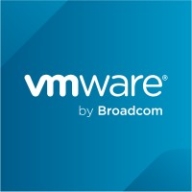

Oracle Data Integrator and Spring Cloud Data Flow are leading contenders in the data integration market. Oracle Data Integrator appears stronger with advanced ETL capabilities, but Spring Cloud Data Flow’s microservices-based architecture offers superior flexibility for modern application environments.
Features: Oracle Data Integrator offers advanced ETL capabilities, extensive scripting language support, and the ability to integrate across multiple platforms. Spring Cloud Data Flow excels in cloud-native integration, strong integration with Kafka and Kubernetes, and offers ease of use.
Room for Improvement: Oracle Data Integrator could improve in mastering skills, ease of GUI use, and error handling. Spring Cloud Data Flow needs better community support, more supported languages, and enhanced UI functionalities.
Ease of Deployment and Customer Service: Oracle Data Integrator supports on-premises and hybrid deployments but suffers from moderate technical support. Spring Cloud Data Flow integrates easily with cloud environments but has limited official support.
Pricing and ROI: Oracle Data Integrator has high costs, favorable ROI for large enterprises, and various licensing models. Spring Cloud Data Flow, being open-source, offers cost-effective solutions with optional fees for enterprise support.
| Product | Market Share (%) |
|---|---|
| Oracle Data Integrator (ODI) | 2.2% |
| Spring Cloud Data Flow | 1.2% |
| Other | 96.6% |

| Company Size | Count |
|---|---|
| Small Business | 25 |
| Midsize Enterprise | 12 |
| Large Enterprise | 43 |
| Company Size | Count |
|---|---|
| Small Business | 3 |
| Midsize Enterprise | 1 |
| Large Enterprise | 5 |
Oracle Data Integrator (ODI) is a data integration software solution that provides a unified infrastructure to streamline data and application integration projects. It uses a powerful design approach to data integration, which separates the declarative rules from the implementation details. The solution is based on a unique ELT (Extract Load Transform) architecture, eliminating the need for a standalone ETL server and proprietary engine.
Oracle Data Integrator Features
ODI has many valuable key features. Some of the most useful ones include:
Oracle Data Integrator Benefits
There are many benefits to implementing ODI. Some of the biggest advantages the solution offers include:
Reviews from Real Users
Below are some reviews and helpful feedback written by PeerSpot users currently using the Oracle Data Integrator (ODI) solution.
Brian D., Business Process and Strategy Specialist Advisor at NTTData, says, “The Knowledge Module (KM) is my favorite feature of ODI. This is where I learned how to use variables to make jobs dynamic. I took that knowledge and created a KM that would go into iTunes and pull the sales of eBooks. Making something that is reusable, like a KM, is important to not only reduce build time but also maintenance in the future.”
Ashok S., Applications Support Manager at a marketing services firm, mentions, "The most valuable features of ODI are the ease of development, you can have a template, and you can onboard transfer very quickly. There's a lot of knowledge modules available that we can use. If you want to connect, for example, a Sibyl, SQL, Oracle, or different products, we don't have to develop them from scratch. They are available, but if it's not, we can go into the marketplace and see if there's a connector there. Having the connector available reduces the amount of hard work needed. We only have to put the inputs and outputs. In some of the products, we use there is already integration available for ODI, which is helpful."
Spring Cloud Data Flow is a toolkit for building data integration and real-time data processing pipelines.
Pipelines consist of Spring Boot apps, built using the Spring Cloud Stream or Spring Cloud Task microservice frameworks. This makes Spring Cloud Data Flow suitable for a range of data processing use cases, from import/export to event streaming and predictive analytics. Use Spring Cloud Data Flow to connect your Enterprise to the Internet of Anything—mobile devices, sensors, wearables, automobiles, and more.
We monitor all Data Integration reviews to prevent fraudulent reviews and keep review quality high. We do not post reviews by company employees or direct competitors. We validate each review for authenticity via cross-reference with LinkedIn, and personal follow-up with the reviewer when necessary.